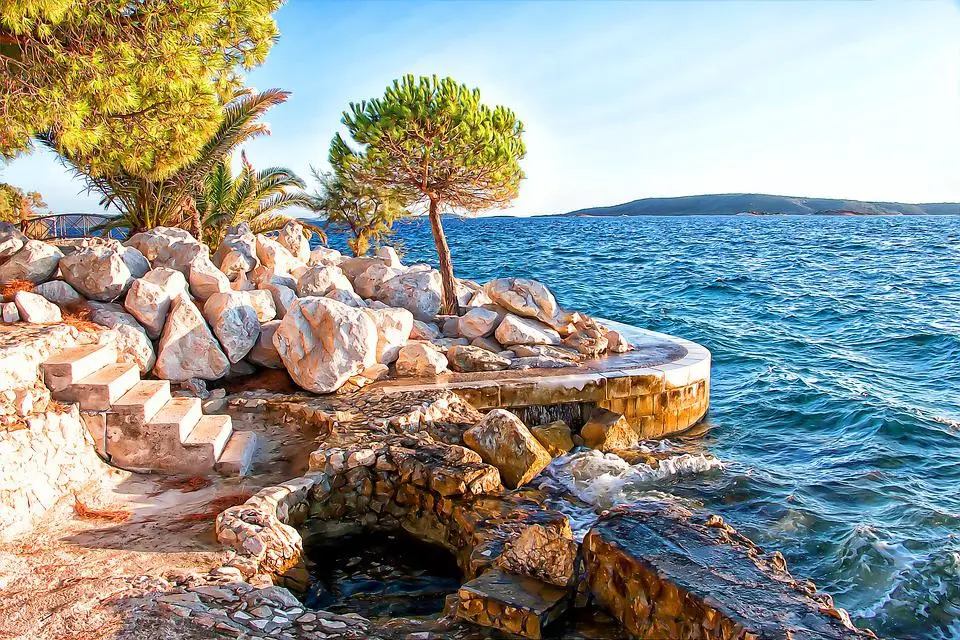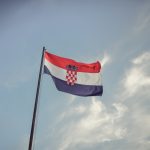As Andrea Beader/Otoci.eu writes, does the new proposal of the Law on Maritime Property and Sea Ports bring us any restrictions or the fencing off of sea beaches to the public?
Reviewing the new proposal of the Law on Maritime Property and Sea Ports, we were taken aback by the proposed items that explicitly enable the limitation of the general use of maritime property, its fencing off and even the potential charging for access to sea beaches along the coast of the mainland and on the islands, which would prevent all citizens of the Republic of Croatia, as well as the rest of the public, from enjoying unhindered public use of maritime property and sea beaches.
We consider parts of the proposed law inadmissible and completely contradictory to everything we have advocated for and communicated all these years, emphasising the importance of protecting Croatia’s greatest social, touristic and economic potential – its maritime assets, which historically and culturally represents an extremely important resource for everyone.
Maritime resource management with an emphasis placed on sea beaches
Five years ago, together with numerous stakeholders in the working group for the drafting of the proposal of the Law on Maritime Property, we worked out the best models for the use of maritime property with a special emphasis placed on beaches, with shared knowledge and experience.
We all had the goal of protecting Croatia’s maritime assets from devastation, the restriction of access and privatisation, and maintaining the concept of public good in order to enable all residents and visitors to swim and relax on the Croatian coast and on the islands. With the departure of Maja Markovcic Kostelac to another job, unfortunately the whole process was suddenly interrupted and the then proposal of the Law ended up stuffed down into a drawer after many hours of work.
Recently, this topic and the decision on the adoption of the new Law on Maritime Property and Sea Ports has been brought up to date again. A new working group was formed, to which we weren’t invited as representatives of both citizens and civil society organisations, despite our continuous work and advocacy for the preservation of maritime property and its public use, especially regarding sea beaches. A few months ago, we were contacted by phone and our opinion was sought.
However, since we weren’t presented with a new proposal for the Law on Maritime Property, we could only give our comments by generally repeating our well-known position – sea beaches in Croatia must remain for public use, and we will not support any restrictions on their use.
Of course, we understand the need for the economic use of maritime property, the improvement of the coastline and raising the quality of services offered on beaches, in ports and at sea. However, we believe that a way must be found so that the maritime asset remains a public asset and that everyone is satisfied with the management method.
As an example of good practice, we sent Mr. Bilaver the Rulebook on the Economic Use of Maritime Property, which we drafted back in 2017 with Split-Dalmatia County and which could serve as an example for everyone to find a way to reconcile private and public interest when concessioning sea beaches.
A dispute of Article 11 of the proposal for the Law on Maritime Property and Sea Ports
Finally, at the end of July of this year, we received the proposal of the new law from the state secretary, Mr. Bilaver, and a request to send our comments, which we did within a few days.
We consider the most controversial part of the proposal of the Law on Maritime Property and Sea Ports to be Article 11, which we’ll transcribe in its entirety:
(1) On part of the maritime property, in accordance with this Law, the general use of the maritime property can be limited, and exceptionally excluded for a certain period of time on the basis of a concession, approval for special use, granting the right to the temporary use of the maritime property, and granting the management of a port.port administration which is open to public traffic.
(2) A restriction on the general use of maritime property is considered to be fencing off or otherwise preventing access to a part of the maritime property with or without charging [a free] for the use of the maritime property, when such a restriction is permitted by a valid concession agreement, a contract on special use or an agreement on the temporary use of the maritime property and by granting a port open for public transport to be placed under the management of the port authority.
(3) The exclusion of maritime property from general use is considered to be the use of a maritime asset in a way that completely or partially excludes the general use of a part of the maritime property, when such exclusion is permitted by a valid concession agreement, a special use agreement or an agreement on the temporary use of the maritime property.
(4) The degree of restriction and exclusion of maritime property from general use and the purpose achieved thereby is determined by the decision on awarding concessions, the decision on granting approval for special use and the decision on granting maritime property for temporary use.
Dear Prime Minister, Minister, Secretary of State and all other members of the working group who are responsible for the preparation of the proposal for this Law, we ask you – do you really intend to limit the use of maritime property, i.e. sea beaches for the public, with this proposal of the Law, and/or enable the installation of fences and the charging for entry to the beaches?
Are you aware of the negative practices of neighbouring countries, such as Italy, where the beaches are mostly under the concessions of catering/hospitality and hotel facilities, and the numerous sunbeds, umbrellas and other facilities don’t allow unhindered access to the sea, even though, according to the law, the public use of maritime property in Italy cannot actually be restricted?
This is an Invitation to the responsible representatives of the institutions of the Republic of Croatia;
Prime Minister, Mr. Plenkovic
Honourable Minister of Maritime Affairs, Mr. Butkovic
State Secretary, Mr. Bilaver
We invite you to review and consider the comments and suggestions that we have sent on the draft law, and be sure to foresee the possibility that the beaches and the sea can be accessed unhindered, regardless of whether they are public or not.
We believe that additional facilities such as sunbeds, umbrellas and other props should incur charges when on the beaches, but they must not endanger and/or prevent unhindered public access to the sea and part of the sea coast. As an example of Split-Dalmatia County’s rules for concessioned beaches, it is defined that it is necessary to leave 30% of the surface for public use and provide pedestrian corridors through which everyone who wants to can enter the sea unhindered.
Practice has shown that both private and public interests are satisfied in this way, and that companies and citizens, in places where the laws are respected, can live a quality co-existence. Any restriction of access to the sea and maritime property is a threat to human rights and will certainly cause a series of citizen complaints, public resistance and protests, which will damage community relations and investment potential on the coast and islands in the long term.
For more, make sure to check out our politics section.












